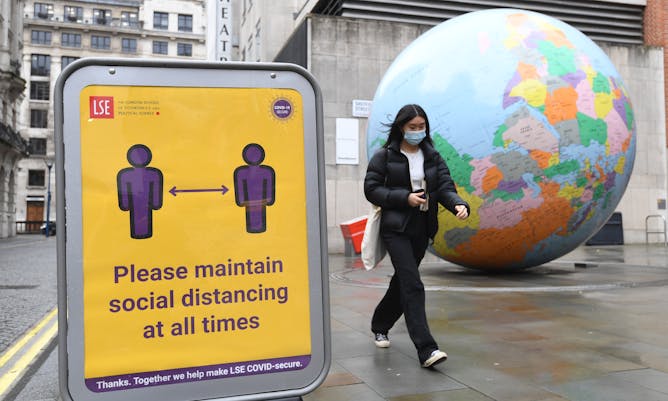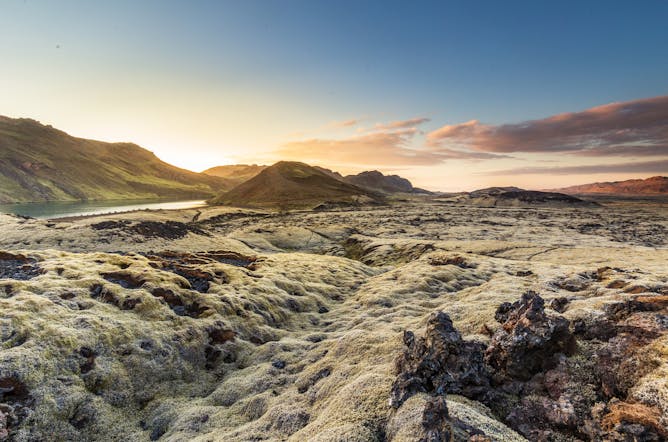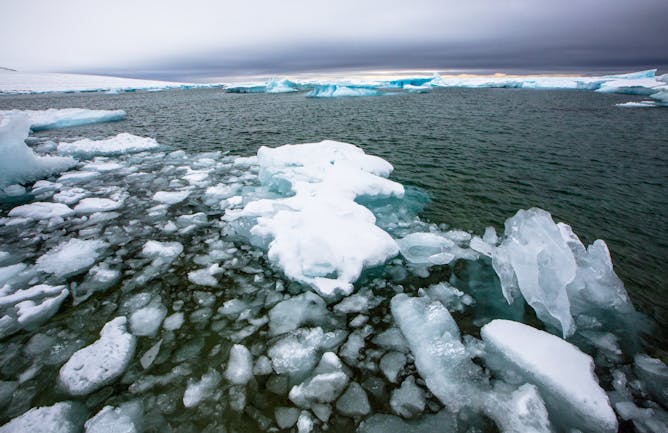|
|
|
|
Back in the days we were allowed to go to parties, my friends would often get annoyed at me. While they were talking, I’d be easily distracted by something going on at the other end of the room. I was trying to concentrate, but struggled to focus on their voice when there were so many others around me talking. I know I’m not alone in this, but I had no idea the issue doesn’t just affect humans.
Female frogs use the calls of males to pick out a potential mate. But when there are more than 40 species of frog all living and croaking in the same place, the sounds are easily drowned out. It turns out tree frogs have evolved a clever trick to help. Their lungs produce a sound and transmit it directly to their eardrums, at exactly the right frequency to muffle the sounds of different species. This leaves the calls of their own species much clearer. This is just how a pair of noise cancelling headphones works to muffle background noise.
As we mark one year from the first death in the UK publicly attributed to COVID-19, Danny Dorling looks at why the death toll has been so high, and suggests inequality may have been partly to blame. Meanwhile, people in the south-west of Iceland have been told to be extra careful as more than 17,000 earthquakes have been recorded in just one week, just 27km from the country’s capital. In the past, similar periods of turbulence have led to volcanic eruptions.
Finally, make sure you listen to latest episode of our podcast, The Conversation Weekly. This week we look at how climate change is flooding the Arctic Ocean with light – and what that means for the species that live there.
|
Abigail Beall
Science and Tech Editor
|

|
|

Clever frog.
Shutterstock/Martin Valigursky
Jakob Christensen-Dalsgaard, University of Southern Denmark
The noise from the lungs drowns out other species' calls, letting the females hear potential mates.
|

Facundo Arrizabalaga/EPA
Danny Dorling, University of Oxford
In a pandemic that exacerbates the gap between rich and poor, was the UK always doomed to have an enormous death toll?
|

The Reykjanes Peninsula.
Johann Helgason/Shutterstock
Dave McGarvie, Lancaster University
The last time south-west Iceland experienced a turbulent period of earthquakes and volcanic eruptions was in the 1300s.
|

The Arctic is warming two to three times faster than any other place on Earth.
Kevin Xu Photography via Shutterstock
Gemma Ware, The Conversation; Daniel Merino, The Conversation
Plus, new discoveries about early humans in Tanzania's Olduvai Gorge. Listen to episode 5 of The Conversation Weekly podcast.
|
Health + Medicine
|
-
Rob Reddick, The Conversation
With multiple variants of concern now present in the UK, attention is turning to when updated vaccines for them will be ready.
-
Sarah Pitt, University of Brighton
Fears that the vaccine doesn't work in older people appear unfounded.
-
Claire Madigan, Loughborough University
Behavioural psychology aims to help us understand why we make the choices we do.
|
|
Politics + Society
|
-
Vishanth Weerakkody, University of Bradford
Internet access should be a basic human right.
-
James Crossland, Liverpool John Moores University
Colonel Majendie was also a pioneer in forensic investigations.
-
Line Nyhagen, Loughborough University
Complaints against BBC Radio 4's Woman's Hour over an interview about female leadership in Islam have revealed how complex the issue is
|
|
Arts + Culture
|
-
Jamie Medhurst, Aberystwyth University
Despite belief that its demographic watch mostly on-demand through devices, there is logic to bringing BBC 3 back to TV.
-
Heather Green, Nottingham Trent University
The closure of physical buildings doesn't have to mean that new readers should miss out on literary history
|
|
Business + Economy
|
-
Jaeyeon Choe, Bournemouth University; Michael Di Giovine, West Chester University of Pennsylvania
With the right preparation, specialist destinations can benefit from an expected increase in demand.
|
|
Science + Technology
|
-
Christopher Hand, Glasgow Caledonian University
People appear to victim-blame celebrities for the abuse they suffer on Twitter.
|
|
Environment + Energy
|
-
Richard K.F. Unsworth, Swansea University; Alix Green, UCL; Michael A. Chadwick, King's College London; Peter JS Jones, UCL
Seagrass meadows are a powerful ally in the effort to slow climate change and reverse wildlife losses.
|
|
| |
Featured events
|

|
Whiteknights, Reading, West Berkshire, OX141DL, United Kingdom of Great Britain and Northern Ireland — University of Reading
|

|
East Road, Cambridge, Cambridgeshire, CB11PT, United Kingdom of Great Britain and Northern Ireland — Anglia Ruskin University
|

|
East Road, Cambridge, Cambridgeshire, CB11PT, United Kingdom of Great Britain and Northern Ireland — Anglia Ruskin University
|

|
East Road, Cambridge, Cambridgeshire, CB11PT, United Kingdom of Great Britain and Northern Ireland — Anglia Ruskin University
|
|
|
|
| |
| |
| |
| |
| |
|
|
|
|
|
|
|